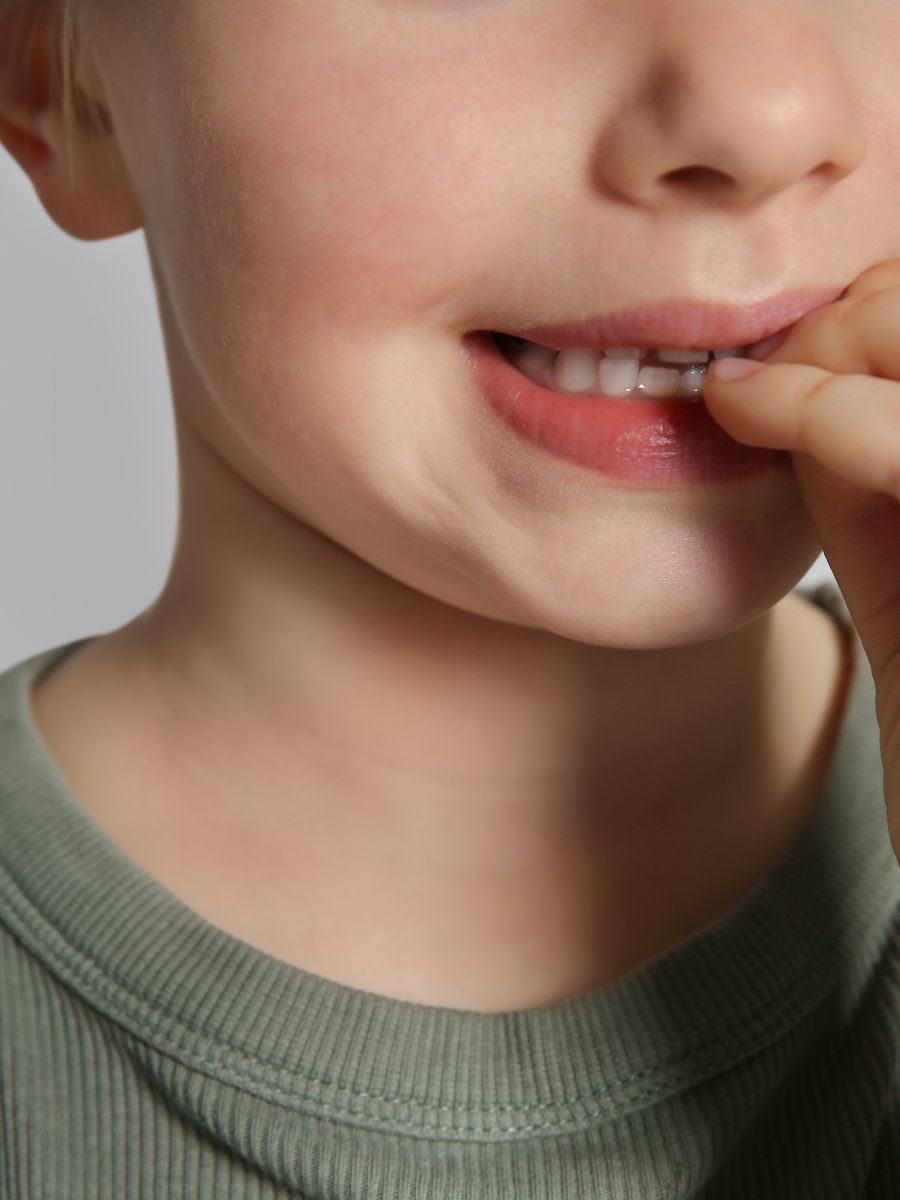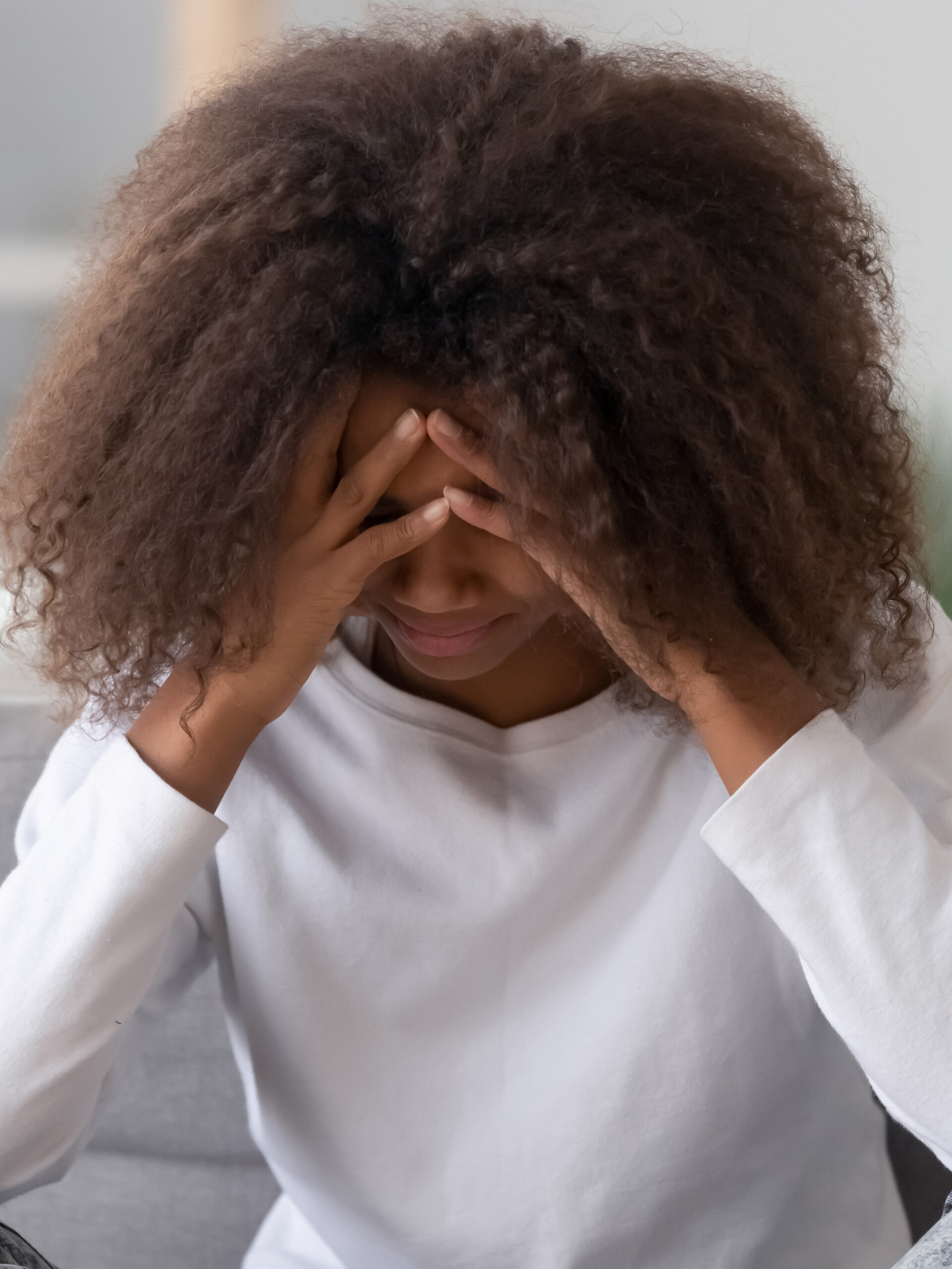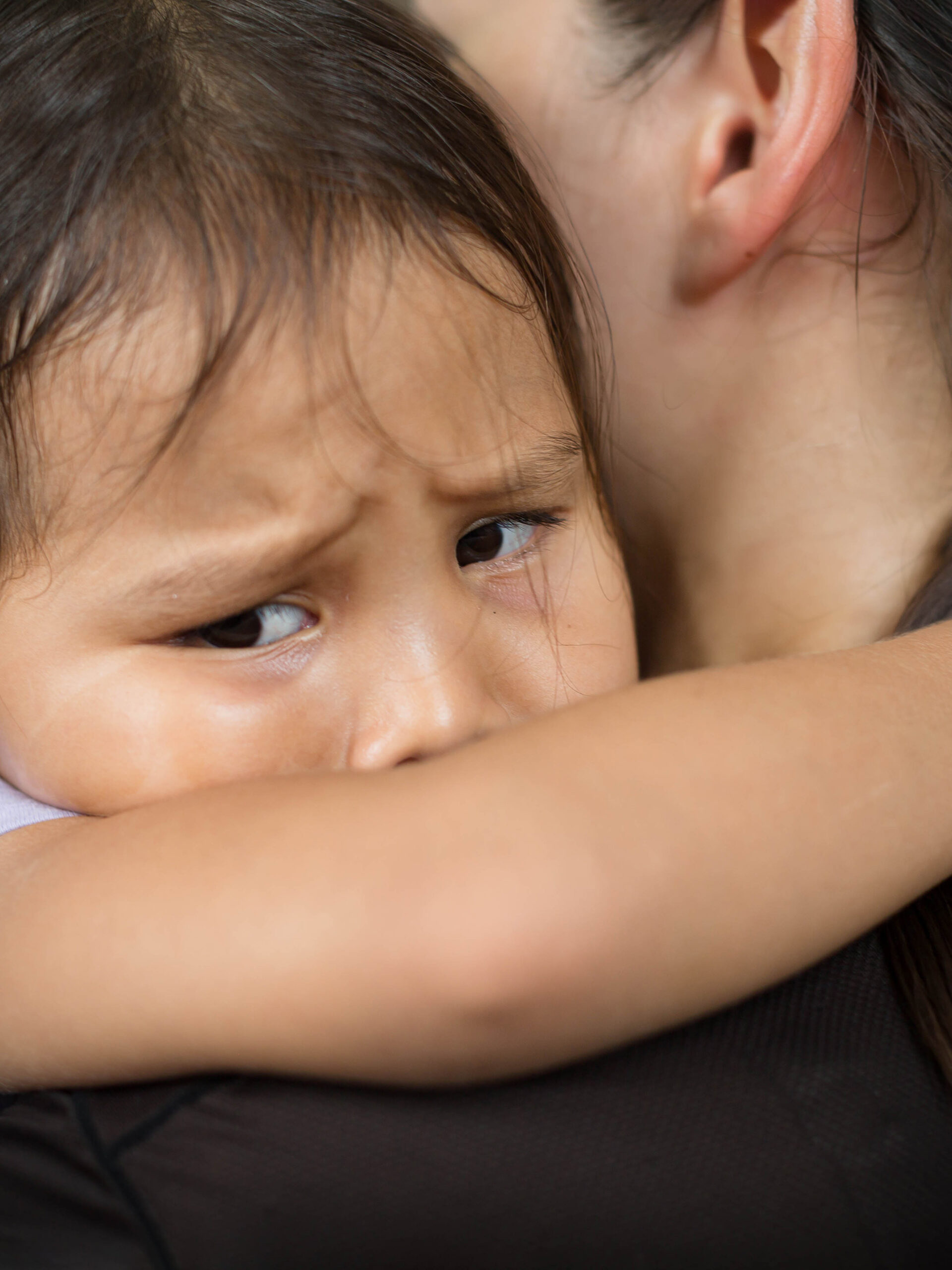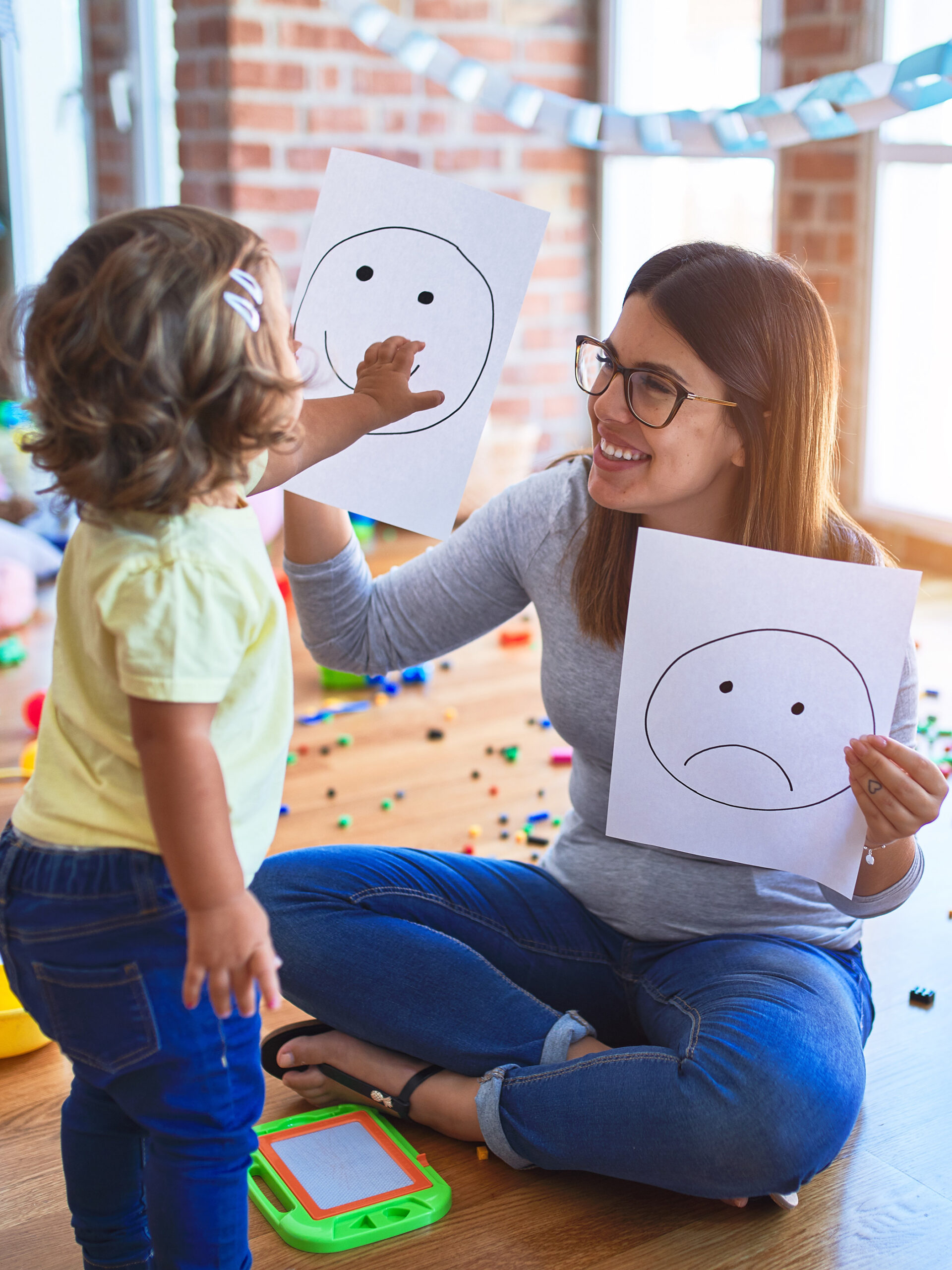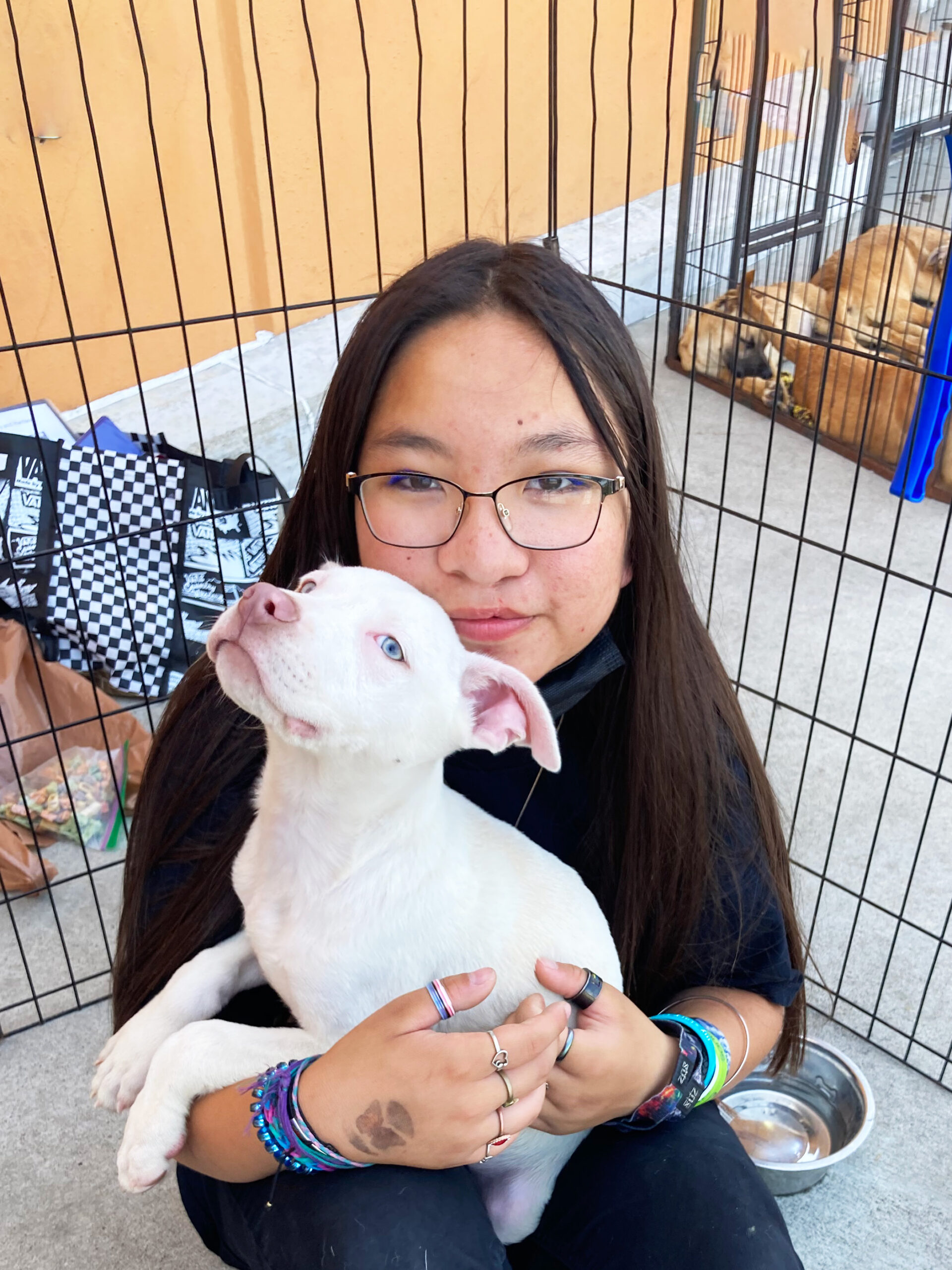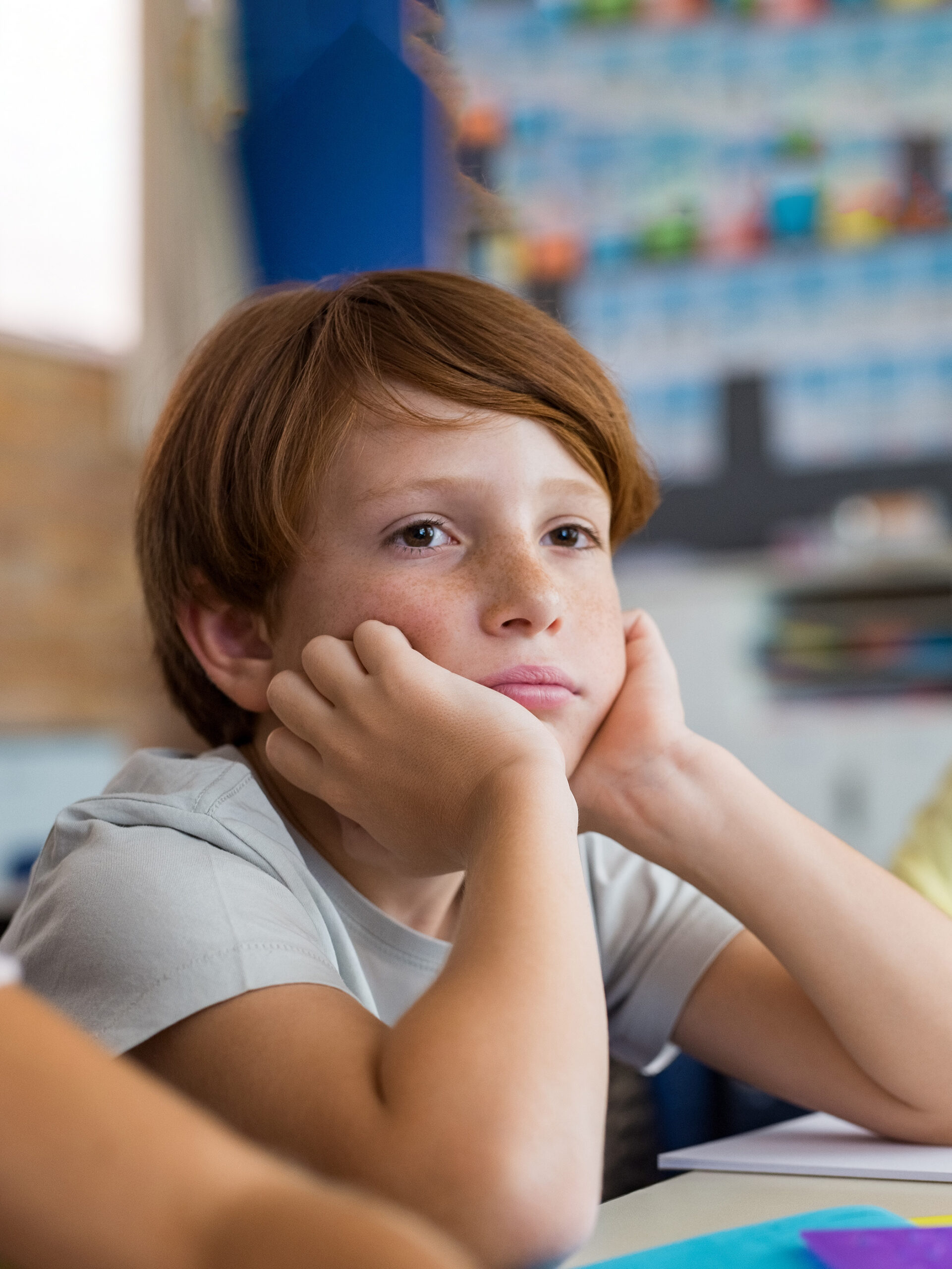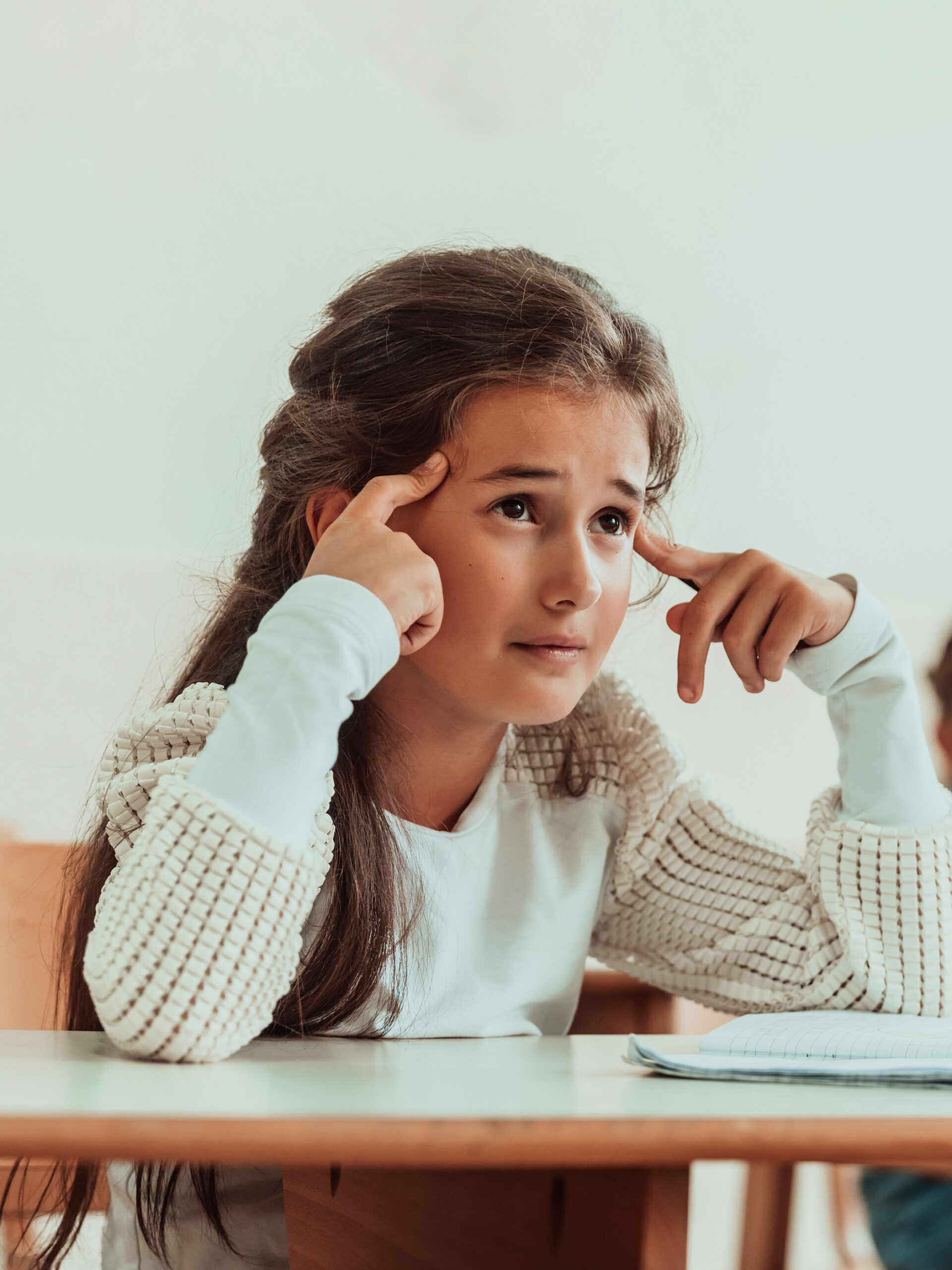MENTAL HEALTH GUIDE
Anxiety
All kids and teens experience some anxiety from time to time. It is a normal part of growing up. But when worries and fears don’t go away or get in the way of day-to-day activities, an anxiety disorder may be present.
Crisis Resources
If your child expresses thoughts of wanting to harm themselves or others, call 9-1-1 or visit the nearest emergency department.
988 Suicide and Crisis Lifeline:
Call 9-8-8
Text any message to 9-8-8
Chat online at 988lifeline.org/chat
Crisis Text Line:
Text “HOME” to 741741
Save for later
Download, print or share on social media.
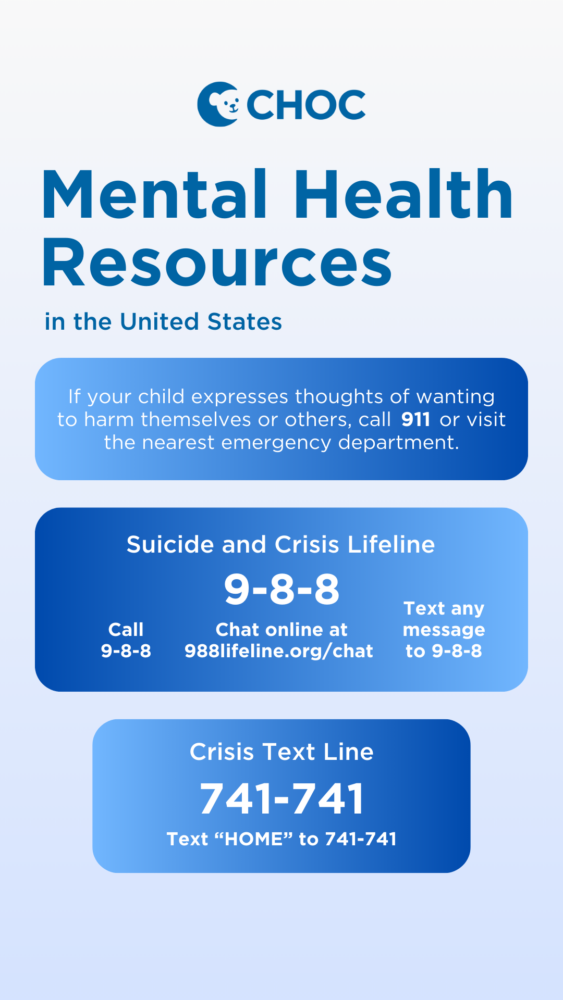
External resources
Anxiety and Depression Association of America
adaa.org
National Institute of Mental Health
www.nimh.nih.gov
Therapist Aid – Anxiety Tools
www.therapistaid.com
Learn more about CHOC’s pediatric mental health services
At CHOC, we specialize in providing a full spectrum of pediatric mental healthcare, including inpatient, intensive outpatient and outpatient program services.
Get 24/7 advice from CHOC
Anxiety Overview
Anxiety disorders affect about 25% of children between the ages of 13 and 18 years old. Below we explore what anxiety is, the various types of anxiety disorders and who is most at risk of an anxiety disorder.
What is anxiety?
Anxiety is a mental and physical reaction to things that may appear to be (or that someone may interpret to be) threats. In small doses, anxiety can be helpful: It protects us from danger and helps us notice possible problems. But when anxiety grows too big or occurs too frequently, it can keep us from our normal activities.
Anxiety drives people to avoid things that scare them. When a scary thing is avoided, there is a short-lived sense of relief. However, the next time the situation arises, it can seem even scarier and the anxiety can get worse.
Remember that anxiety can look different from person to person; some people may experience worry about many areas in their life, while others notice it in social settings or in response to specific things, such as animals or heights.
What are the different types of anxiety disorders?
- Generalized Anxiety Disorder (GAD)
- Social anxiety
- Separation anxiety
- Phobias
- Selective Mutism
- Post-Traumatic Stress Disorder
- Obsessive-Compulsive Disorder
- Substance/Medication-Induced Anxiety Disorder
- Anxiety disorder due to another medical condition
What are some of the symptoms of anxiety?
Anxiety symptoms vary from person to person and also by age. It can be difficult to spot in some kids. Anxiety can include but is not limited to:
- Worry that’s difficult to control
- Worrying about things that haven’t happened yet or may not ever happen
- Feeling very nervous
- Sleep problems
- Clingy behavior
- Muscle tension
- Avoidance of situations
- Difficulty concentrating
- Increased heart rate
- Frequent stomach aches, headaches or other physical complaints
- Irritability
- Becoming easily tired, frequent fatigue
- Being easily startled
Who experiences anxiety?
Anxiety is the most common mental health disorder among adults and children. According to the National Institute of Mental Health, one in four adolescents has mild to moderate anxiety, though it can also be seen even in very young children. Girls are more likely than boys to be diagnosed with an anxiety disorder.
Experts believe anxiety disorders can be both genetic (passed down by parents) and caused by environmental factors (such as a traumatic event). A child can also learn anxiety and fear from family members and others.
It is important to note that anxiety in children and teens often overlaps with depression. Knowing the signs and symptoms of both conditions can help you best identify how to support your child.
 Print this section
Print this section
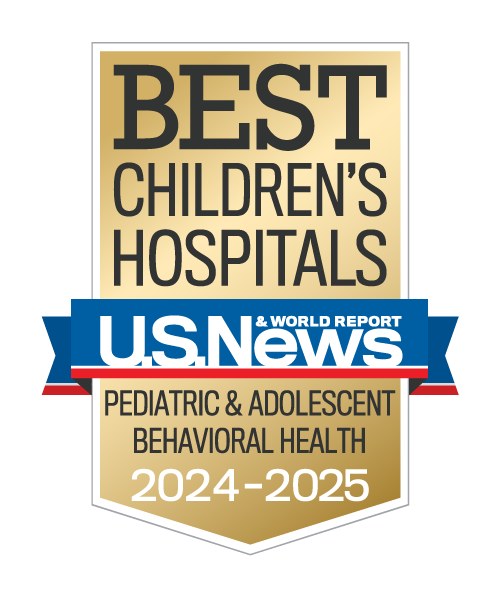
Learn more about CHOC’s Pediatric Mental Health Services
CHOC Hospital was named one of the nation’s best children’s hospitals by U.S. News & World Report in its 2024-25 Best Children’s Hospitals rankings and ranked in the behavioral health specialty.

Tips for parents and caregivers of children with anxiety
One in four adolescents has mild to moderate anxiety, making it the most common mental health disorder among young people, according to the National Institute of Mental Health. Because it can look different in each person and may or may not be triggered by a specific event or setting, it can be difficult for parents to recognize at first. Knowing the symptoms and learning some coping skills can support you in helping your child with anxiety.
Help kids recognize their anxiety
Children and teens often don’t know they are anxious. Help them learn how their body responds to feeling worried or fearful; talk through their emotional and physical feelings with them so they can better identify it when it happens again.
Listen and show support
Encourage your child to open up about any fears and worries they have. Even if their fears seem irrational or exaggerated, let them know you care and think that what they feel is important.
Stick to a routine
Schedules and routines can create a sense of structure, security and comfort for kids with anxiety. Try to make things seem normal for your child, even though they may not be.
Praise small accomplishments
Notice when your child follows through with trying something new or approaching something that makes them nervous. Tell them how much you admire them for trying and that trying is key regardless of the outcome.
Notice your own reactions
Pay attention to your own thoughts and feelings during stressful times. Try to stay calm and positive when your child is anxious.
Find treatment for your child
If worry is getting in the way of normal, daily activities, your child may benefit from therapy, counseling, medication or other treatments. Talk with your child’s doctor to decide what will work best for your family. If you’re having a hard time with your child’s anxiety, it may also help you to seek therapy or counseling, as well.
Get help if you’re concerned
If your child expresses thoughts about wanting to harm themselves or others, or is saying unsafe things, call 9-1-1 or bring them to the nearest emergency department.
 Print this section
Print this section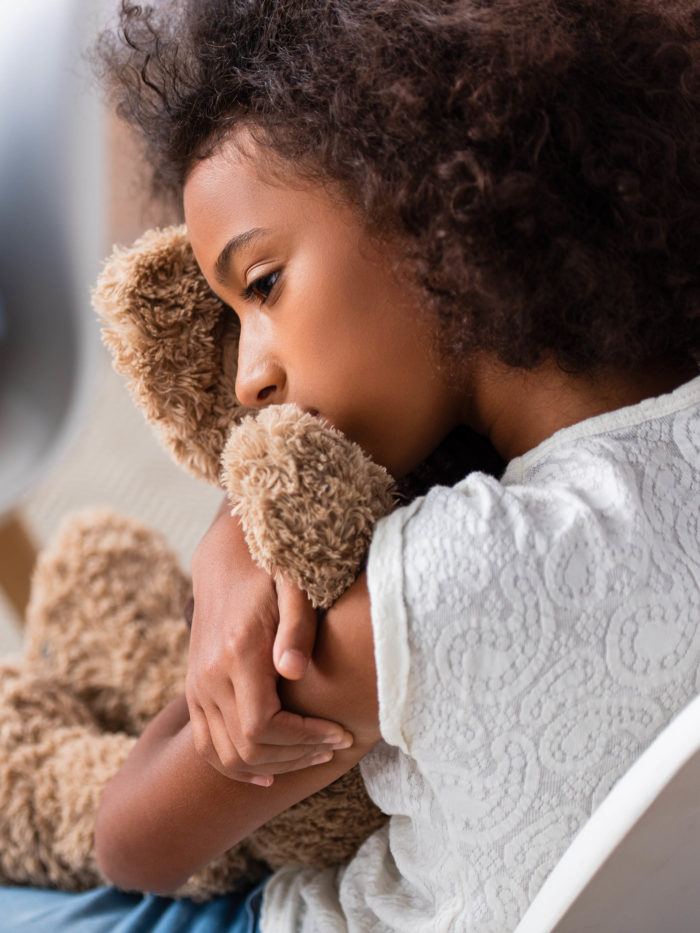
Tips for kids and teens with anxiety
Anxiety is a feeling everyone experiences at some point. In some situations, anxiety can be helpful; it keeps us alert, protects us from danger and helps us notice problems around us. But for some kids and teens, that sense of anxiety grows too strong and can get in the way of day-to-day activities. These tips on how to manage anxiety can help.
Find ways to relax
When you feel anxious, your muscles tense up, your heart rate increases and your breathing gets faster. Take deep breaths for a while to try to get your body back to a resting state.
Try This: Pretend your belly is a balloon. Breathe in to make it bigger, then breathe out and watch it shrink. Count slowly to four when you breathe in and then to four when you breathe out.
Face your fears
It might sound scary, but facing your fears in a safe way is proven to help. It’s called exposure, and it involves taking small steps to get yourself used to things that make you anxious. If you only avoid the thing that makes you anxious, the fear of it may grow over time.
Try this: Get the help of a parent or adult you trust and start with something small. They can help safely guide you through exposure to it until you start to become less anxious. Using the deep breathing exercise above will also help.
Take charge of your thinking
The tricky thing about anxiety is that it’s easy to think negative thoughts when you’re anxious, which only makes it worse. Pay attention to what you are saying to yourself and avoid thinking negative thoughts or assuming the worst.
Try this: Ask yourself, “What would I tell my friend if they were in this situation?” Or try thinking of times you’ve been able to handle a tough problem. This can help steer you away from negative thoughts.
Get enough sleep
Anxiety can cause a frustrating cycle. When we’re anxious, it can be hard to sleep. But not getting enough sleep can make us feel more anxious. Try to eliminate the things that keep you awake and focus instead on setting aside some relaxing time before bed.
Try this: Dedicate the hour before bed to quiet time. Stay away from your phone, TV and computer—the bright lights trick your brain into staying awake longer. Try listening to calm music or a guided meditation instead.
Get support
You never have to go through anxiety alone. Having people to turn to for support makes a big difference. A therapist, such as a psychologist, social worker or counselor, can help you understand and manage your feelings. This might be through talk therapy—such as cognitive behavioral therapy (CBT) or dialectical behavior therapy (DBT)—medication or a combination of both.
Always remember to call 9-1-1 if you are in a crisis or are feeling like you want to hurt yourself or others. Helplines are available by calling 1-800-273-TALK or texting “HOME” to 741741.
 Print this section
Print this sectionLearn more about anxiety symptoms and treatment
At CHOC, we specialize in providing a full continuum of pediatric mental healthcare, including inpatient, intensive outpatient and outpatient program services.
Anxiety recommended reading
 Print this section
Print this section
Related guides
Anxiety conditions, such as generalized anxiety disorder, can often occur alongside other mental health conditions, such as depression and eating disorders. For more information on other mental health conditions that can occur with anxiety, please visit our other mental health guides.
Additional Resources
Anxiety books
- Sea Otter Cove, Lori Lite, and Max Stasuyk
- A Boy and A Bear: The Children’s Relaxation Book, Lori Lite
- The Relaxation and Stress Reduction Workbook for Kids, Lawrence E. Shapiro, Ph.D. and Robin K. Sprague
- The Huge Bag of Worries, Virginia Ironside
- Peaceful Piggy Meditation, Kerry Lee MacLean
- Mr. Worry: A Story about OCD, Holly L. Niner, and Greg Swearingen
- Wilma Jean the Worry Machine, Julia Cook and Anita DuFalla
- Is a Worry Worrying You?, Ferida Wolff, Harriet May Savitz, Marie LeTourneau
- The Kids’ Guide to Staying Awesome and In Control, Lauren Brukner
Anxiety books for teens
- Outsmarting Worry, Dawn Huebner PhD and Kara McHale
- The Stress Reduction Workbook for Teens, Gina M. Biegel, MA, LMFT
- Anxiety Sucks! A Teen Survival Guide, Natasha Daniels
- A Still Quiet Place for Teens, Amy Saltzman, MD
- The Anxiety Survival Guide for Teens, Jennifer Shannon, LMFT and Doug Shannon
- Stress 101: An Overview for Teens, Margaret O. Hyde and Elizabeth H. Forsyth
Anxiety books for parents
- Helping Your Anxious Child, Ronald Rapee, PhD, Ann Wignall, PsyD, Susan Spence, PhD, Heidi Lyneham, PhD, & Vanessa Cobham, PhD
- The Yes Brain, Tina Payne Bryson
- The Mindful Child, Susan Kaiser Greenland
- Parenting Your Anxious Child with Mindfulness and Acceptance, Christopher McCurry, Steven C. Hayes
Related Articles
The guidance on this page has been clinically reviewed by CHOC pediatric experts.
For more health and wellness resources from the pediatric experts at CHOC:
Sign up for the Kids Health newsletter.
The contents of this webpage, including text, graphics, audio files, and videos (“Materials”), are for your general information only. The Materials are not intended to substitute qualified professional or medical advice, diagnoses, or treatments. CHOC does not recommend or endorse any specific tests, physicians, products, procedures, or other information that may be mentioned on or linked to this webpage. Always call your physician or another qualified health provider if you have any questions or problems. If you think you may have a medical emergency, call your doctor, go to the nearest emergency department, or call 911.
For more health information for your family visit health.choc.org



